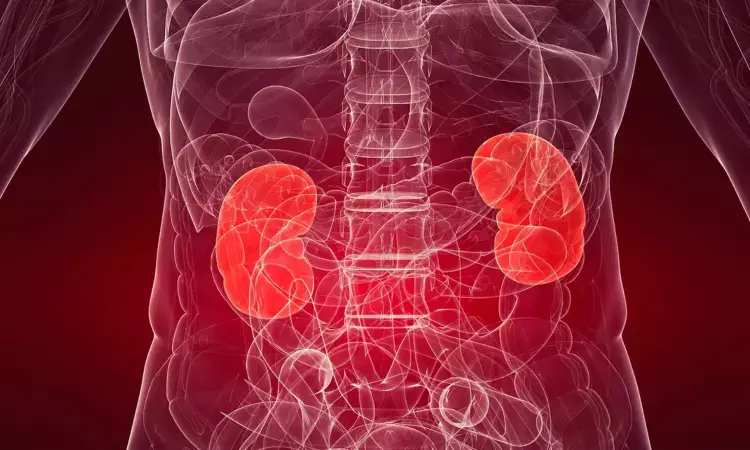- Home
- Medical news & Guidelines
- Anesthesiology
- Cardiology and CTVS
- Critical Care
- Dentistry
- Dermatology
- Diabetes and Endocrinology
- ENT
- Gastroenterology
- Medicine
- Nephrology
- Neurology
- Obstretics-Gynaecology
- Oncology
- Ophthalmology
- Orthopaedics
- Pediatrics-Neonatology
- Psychiatry
- Pulmonology
- Radiology
- Surgery
- Urology
- Laboratory Medicine
- Diet
- Nursing
- Paramedical
- Physiotherapy
- Health news
- Fact Check
- Bone Health Fact Check
- Brain Health Fact Check
- Cancer Related Fact Check
- Child Care Fact Check
- Dental and oral health fact check
- Diabetes and metabolic health fact check
- Diet and Nutrition Fact Check
- Eye and ENT Care Fact Check
- Fitness fact check
- Gut health fact check
- Heart health fact check
- Kidney health fact check
- Medical education fact check
- Men's health fact check
- Respiratory fact check
- Skin and hair care fact check
- Vaccine and Immunization fact check
- Women's health fact check
- AYUSH
- State News
- Andaman and Nicobar Islands
- Andhra Pradesh
- Arunachal Pradesh
- Assam
- Bihar
- Chandigarh
- Chattisgarh
- Dadra and Nagar Haveli
- Daman and Diu
- Delhi
- Goa
- Gujarat
- Haryana
- Himachal Pradesh
- Jammu & Kashmir
- Jharkhand
- Karnataka
- Kerala
- Ladakh
- Lakshadweep
- Madhya Pradesh
- Maharashtra
- Manipur
- Meghalaya
- Mizoram
- Nagaland
- Odisha
- Puducherry
- Punjab
- Rajasthan
- Sikkim
- Tamil Nadu
- Telangana
- Tripura
- Uttar Pradesh
- Uttrakhand
- West Bengal
- Medical Education
- Industry
Both AKI Stage 1A and 1B Increase Mortality in Cirrhosis, suggests study

Researchers have determined in a new study that even mild acute kidney injury (AKI) in cirrhosis stage 1A, greatly elevates mortality risk over no AKI in patients. The research further identified that stage 1B is an even greater risk, almost five times higher than no AKI. This study was published in the Journal of Clinical and Experimental Hepatology by Yue-Meng and colleagues.
AKI is a frequent complication in cirrhotic patients, but the division of AKI stage 1 into 1A and 1B has been controversial, with various studies showing conflicting results. The present systematic review and meta-analysis presents the strongest evidence up to now, which indicates the need for early detection and treatment of both subtypes.
Systematic review used a strict search on PubMed, Cochrane Library, EMBASE, Scopus, and Chinese National Knowledge Infrastructure (CNKI) databases. Studies of AKI stage 1A vs. stage 1B and no AKI (NAKI) were included.
A total of 11 studies were included, with the following:
• 2,647 patients with AKI stage 1A
• 3,052 patients with AKI stage 1B
• 1,395 patients with no AKI
Key Findings
Prevalence:
• AKI stage 1A prevalence: 16.3% (95% CI: 11.3–22.9%)
• AKI stage 1B prevalence: 15.7% (95% CI: 9.3–25.3%)
Risk of mortality in comparison to no AKI (NAKI):
• Stage 1A: 2-fold increase (OR: 1.98, 95% CI: 1.33–2.97, P=0.004)
• Stage 1B: 4.8-fold increase (OR: 4.79, 95% CI: 3.30–6.95, P<0.001)
Risk of mortality in comparison to stage 1A:
• Stage 1B increased the risk of mortality by an additional 1.6 times (OR: 1.55, 95% CI: 1.03–2.31, P<0.001).
This meta-analysis of 11 studies involving more than 7,000 patients presents strong evidence that both AKI stages 1A and 1B independently increase mortality risk in cirrhosis. With incidence rates of approximately one in six patients, AKI is prevalent, and even its mildest level almost doubles the risk of death. Stage 1B further deteriorates outcomes, risk nearly fivefold higher. Clinicians should pursue early identification and active management of all AKI stages in cirrhotic patients.
Reference:
Wan, Y.-M., Wu, H.-M., Li, Y.-H., Huang, S.-Q., Yin, H.-J., & Xu, Y. (2025). The mortality risk of acute kidney injury stage 1A and 1B in cirrhosis: A systematic review and meta-analysis. Journal of Clinical and Experimental Hepatology, 103154, 103154. https://doi.org/10.1016/j.jceh.2025.103154Dr Riya Dave has completed dentistry from Gujarat University in 2022. She is a dentist and accomplished medical and scientific writer known for her commitment to bridging the gap between clinical expertise and accessible healthcare information. She has been actively involved in writing blogs related to health and wellness.
Dr Kamal Kant Kohli-MBBS, DTCD- a chest specialist with more than 30 years of practice and a flair for writing clinical articles, Dr Kamal Kant Kohli joined Medical Dialogues as a Chief Editor of Medical News. Besides writing articles, as an editor, he proofreads and verifies all the medical content published on Medical Dialogues including those coming from journals, studies,medical conferences,guidelines etc. Email: drkohli@medicaldialogues.in. Contact no. 011-43720751


